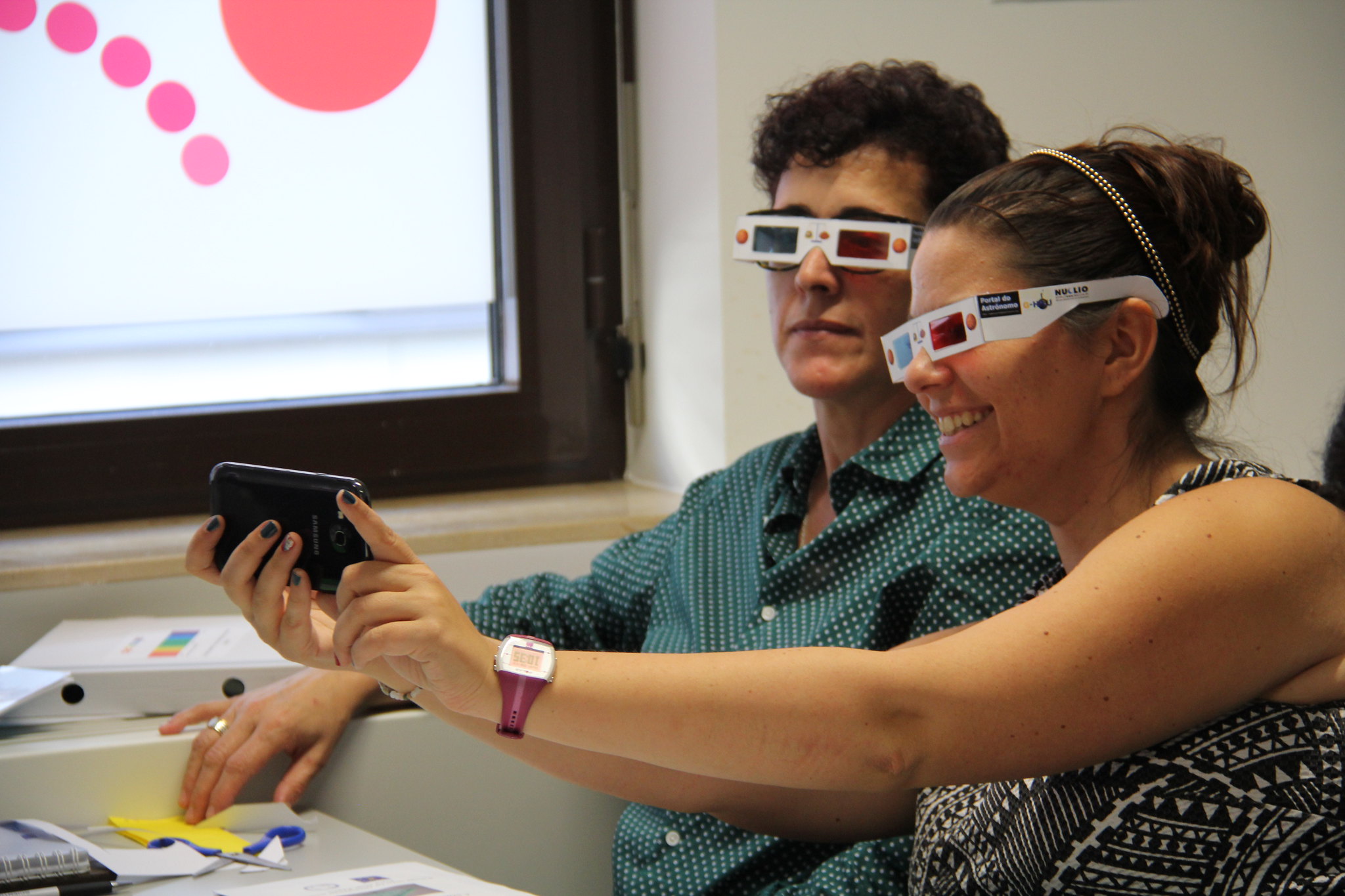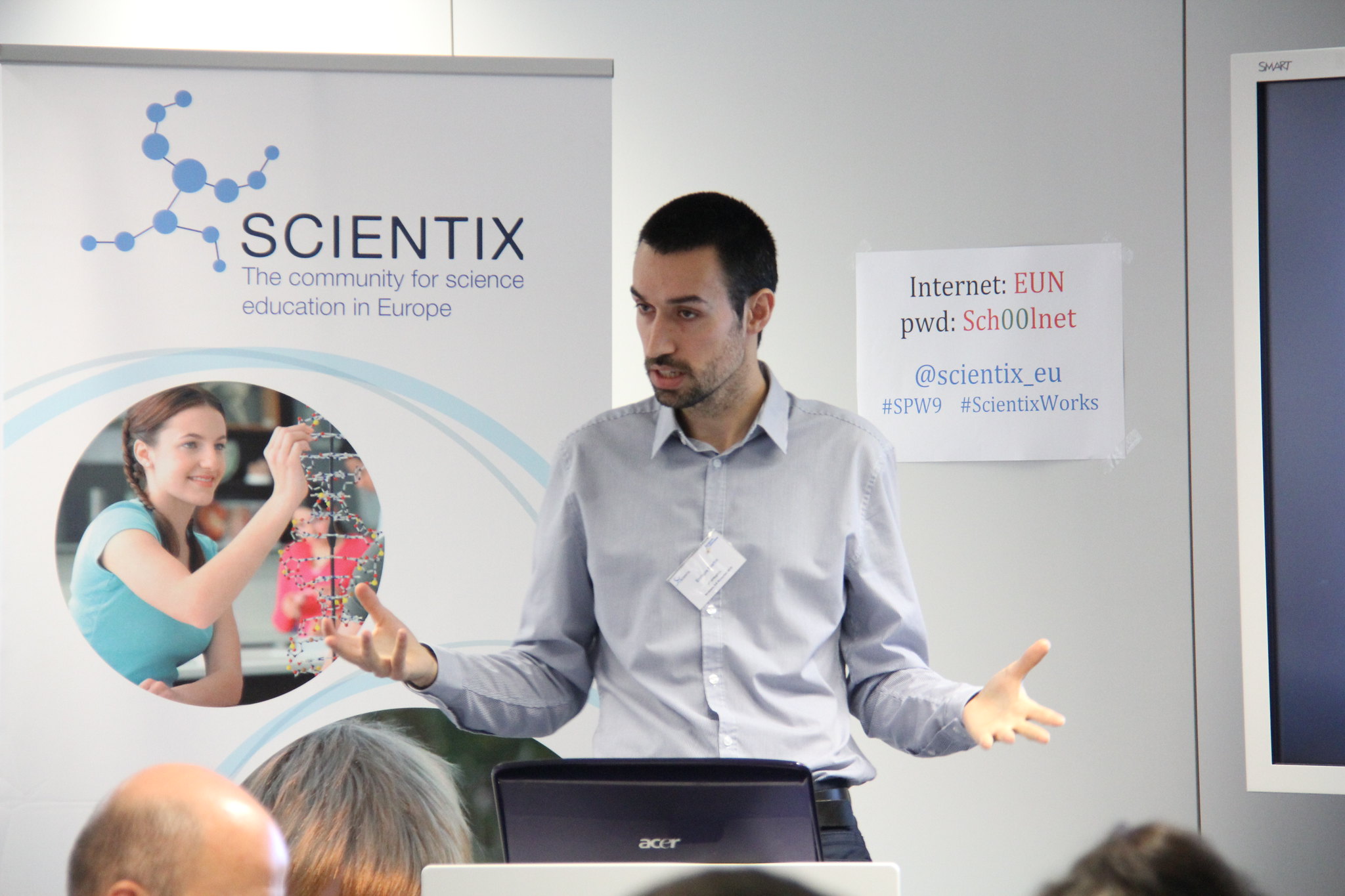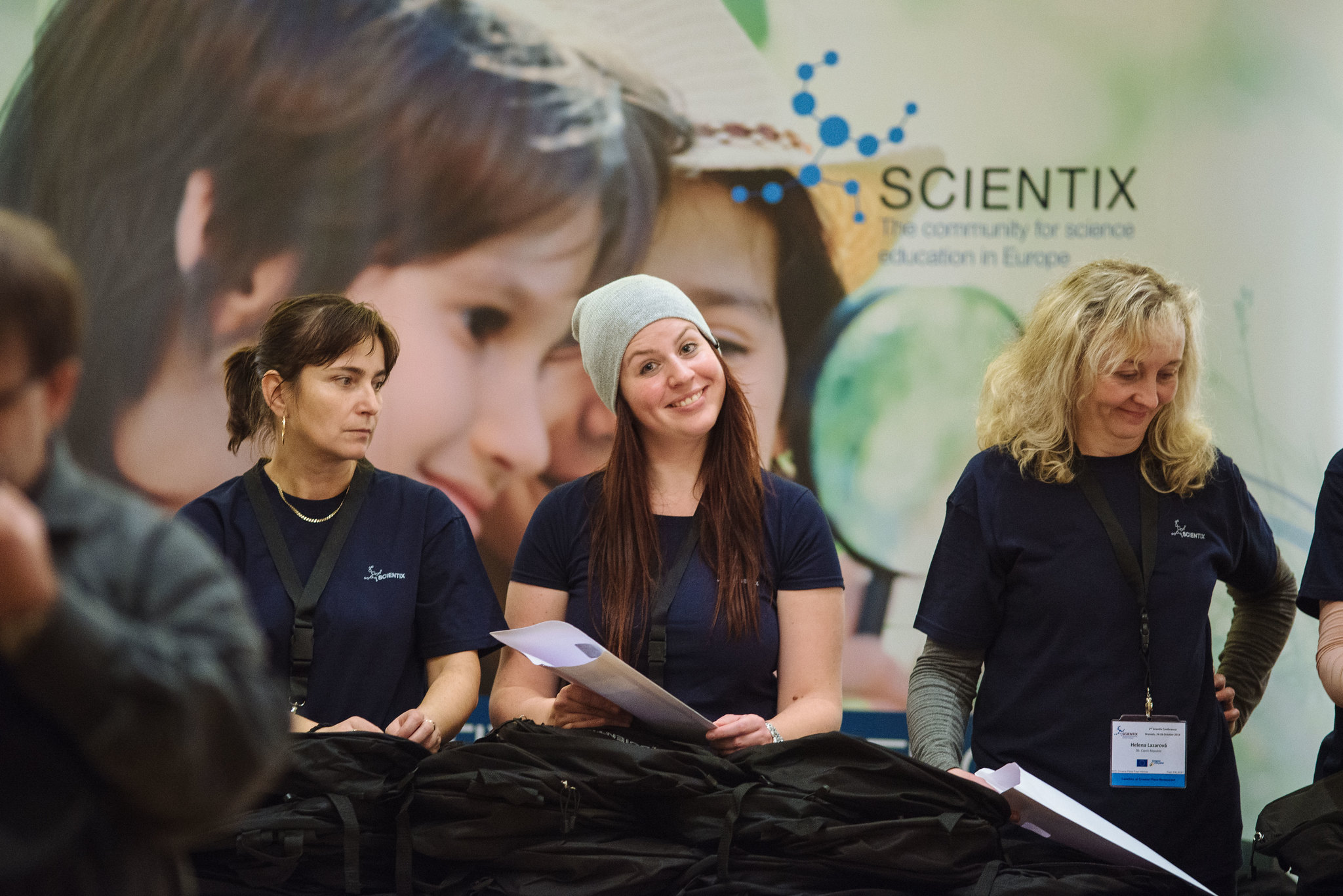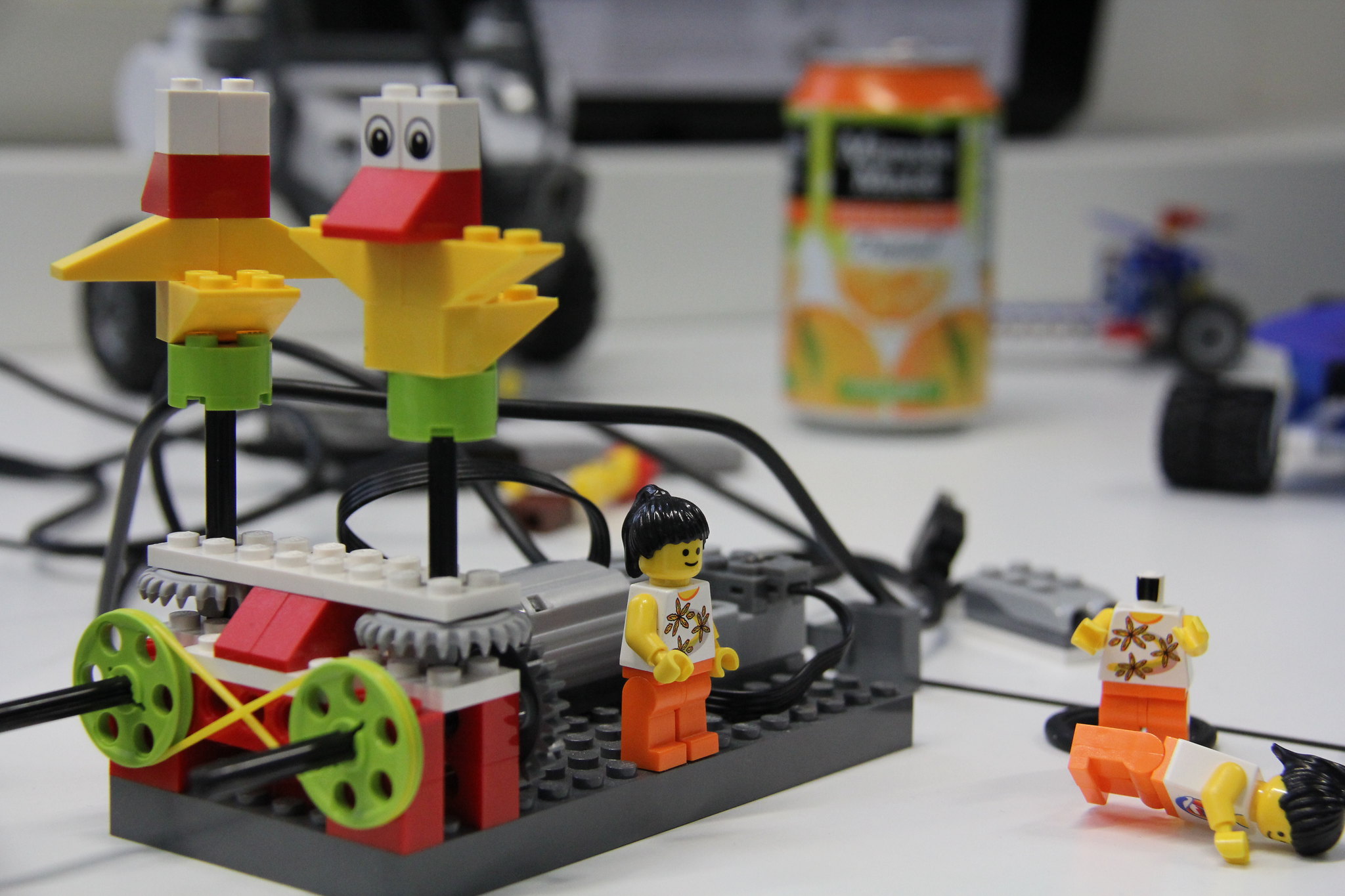Teachers! Tap into an EU bounty of free science education resources
Rather than relentlessly create and search for useful science education resources, schools and teachers can tap into Scientix, a European-wide science education community that offers a bounty of classroom activities, lesson plans, CPD, networking events and more – all of which have been studiously created by EU-funded research projects. Dr Agueda Gras-Velazquez, Science Programme Manager and Head of the Science Education Department at European Schoolnet, explains
WHY WAS SCIENTIX SET UP? WHAT ISSUE IS IT HOPING TO ADDRESS?
Scientix was originally set up to ensure that all STEM materials (lesson plans, activities, publications, etc.) created through publicly-funded projects (e.g. financed by the European Commission) had a “home” once the projects and their funding ended – and to provide people with access to these materials beyond those directly involved in each project. Since then, however, it has become a catalyser for collaboration and exchange among all those working to improve STEM education, while still providing a repository of resources from EU-funded projects.
Some people in STEM education find themselves working in isolation and this is an issue we hope to address. Working alone can become demoralising and isn’t always efficient because people end up reproducing resources that have already been created, some of which may not work. We’re addressing this by giving people working in STEM education an opportunity to connect to and learn from others, and work more efficiently to improve STEM education overall.
WHO IS SCIENTIX AIMED AT?
Primary and secondary school teachers, policy makers, researchers, teacher trainers – pretty much anybody interested in STEM education. The focus was originally on science teachers, but we now know that Scientix is being used by teachers of other subject areas, such as language teachers, who want to discuss different topics and have access to interesting learning materials for their classes!
WHAT RESOURCES DOES SCIENTIX PROVIDE FOR EDUCATORS?
We provide free access to all of the materials created by publicly- funded STEM projects, training, exchange opportunities, research, news via newsletters and social media. The training can be done online via webinars, MOOCs, or face-to-face via workshops in the European Schoolnet’s (EUN) Future Classroom Lab in Brussels and as part of other EUN- or nationally-organised events. The exchange opportunities happen via live events, seminars, workshops and conferences.
HOW MANY TEACHERS/SCHOOLS ARE ENGAGING WITH SCIENTIX ACROSS EUROPE?
At the moment, over 8,000 different teachers connect with Scientix every month, which means that over 100,000 primary and secondary students are reaping the benefits of Scientix on a monthly basis! By engaging with Scientix, teachers and schools can learn from others, and get anything they need for their STEM classes.
THERE ARE SCIENTIX NATIONAL CONTACT POINTS (NCPS) FOR TEACHERS IN EUROPE. WHAT IS THEIR ROLE AND WHAT RESOURCES OR SUPPORT CAN THEY OFFER?
Their role is to act as a link between Scientix at a European level and activities taking place in each country. NCPs engage with national communities of STEM professionals, publicise Scientix activities, provide information and exchange opportunities, and organise national workshops, webinars and other related activities, depending on the needs of the country in terms of STEM education.
NCPs also monitor and analyse national initiatives regarding science education policy and practice, providing an overview of the national initiatives in science education taking place across Europe. These reports are published on the Scientix website. In the main, NCPs are Ministries of Education, but, in some cases, they are teacher training institutions, universities or teacher organisations that are best placed to support STEM education in the relevant countries.
Teachers at the 9th Science Projects Workshop, Future Classroom Lab
A speaker at the 9th Science Projects Workshop, Future Classroom Lab
Teachers get a warm welcome at one of Scientix’s many events
Working with Lego at the 5th Science Projects Workshop, Future Classroom Lab
Photos courtesy of Scientix
WHY WAS SCIENTIX SET UP? WHAT ISSUE IS IT HOPING TO ADDRESS?
Scientix was originally set up to ensure that all STEM materials (lesson plans, activities, publications, etc.) created through publicly- funded projects (e.g. financed by the European Commission) had a “home” once the projects and their funding ended – and to provide people with access to these materials beyond those directly involved in each project. Since then, however, it has become a catalyser for collaboration and exchange among all those working to improve STEM education, while still providing a repository of resources from EU- funded projects.
Some people in STEM education find themselves working in isolation and this is an issue we hope to address. Working alone can become demoralising and isn’t always efficient because people end up reproducing resources that have already been created, some of which may not work. We’re addressing this by giving people working in STEM education an opportunity to connect to and learn from others, and work more efficiently to improve STEM education overall.
WHO IS SCIENTIX AIMED AT?
Primary and secondary school teachers, policy makers, researchers, teacher trainers – pretty much anybody interested in STEM education. The focus was originally on science teachers, but we now know that Scientix is being used by teachers of other subject areas, such as language teachers, who want to discuss different topics and have access to interesting learning materials for their classes!
WHAT RESOURCES DOES SCIENTIX PROVIDE FOR EDUCATORS?
We provide free access to all of the materials created by publicly- funded STEM projects, training, exchange opportunities, research, news via newsletters and social media. The training can be done online via webinars, MOOCs, or face-to-face via workshops in the European Schoolnet’s (EUN) Future Classroom Lab in Brussels and as part of other EUN- or nationally-organised events. The exchange opportunities happen via live events, seminars, workshops and conferences.
HOW MANY TEACHERS/SCHOOLS ARE ENGAGING WITH SCIENTIX ACROSS EUROPE?
At the moment, over 8,000 different teachers connect with Scientix every month, which means that over 100,000 primary and secondary students are reaping the benefits of Scientix on a monthly basis! By engaging with Scientix, teachers and schools can learn from others, and get anything they need for their STEM classes.
THERE ARE SCIENTIX NATIONAL CONTACT POINTS (NCPS) FOR TEACHERS IN EUROPE. WHAT IS THEIR ROLE AND WHAT RESOURCES OR SUPPORT CAN THEY OFFER?
Their role is to act as a link between Scientix at a European level and activities taking place in each country. NCPs engage with national communities of STEM professionals, publicise Scientix activities, provide information and exchange opportunities, and organise national workshops, webinars and other related activities, depending on the needs of the country in terms of STEM education.
NCPs also monitor and analyse national initiatives regarding science education policy and practice, providing an overview of the national initiatives in science education taking place across Europe. These reports are published on the Scientix website. In the main, NCPs are Ministries of Education, but, in some cases, they are teacher training institutions, universities or teacher organisations that are best placed to support STEM education in the relevant countries.
WILL UK SCHOOLS AND TEACHERS STILL BE ABLE TO ACCESS EUN RESOURCES AFTER BREXIT?
UK schools and teachers will continue to be welcome to access the resources and online activities and training, like all other teachers and schools worldwide. The only limitation would be that we would not be able to cover the costs of flights and hotels for UK teachers to attend EUN events, and this applies to all teachers outside of the EU.
SCIENTIX IS COMING TO THE END OF ITS HORIZON 2020 FUNDING PERIOD. WHAT’S NEXT FOR THIS PROJECT?
We understand that there will be funding in 2020 for an additional three years. We appreciate the European Commission’s General Directorate for Research and Innovation for the funding so far and its continuous support.
FINALLY, WHY ARE YOU PASSIONATE ABOUT SCIENCE EDUCATION?
Science helps explain the world and improves our lives – and the possibilities it provides from the nuclear level to the cosmological horizon are fascinating. Science is everywhere: in the breakfast we eat in the morning, the clothes we wear, the transport we use to go to school or work, the TV we watch in the evening, the games we play, the medicines we take when we’re unwell, everything. We should all understand its importance and ensure science helps us even more in the future by encouraging eager students, supporting governments and creating a committed society.
Through science education, Scientix is working to ensure that some students follow science careers, but, more importantly, we’re ensuring that all students, regardless of what they end up studying in the future, understand the importance of science in their lives.
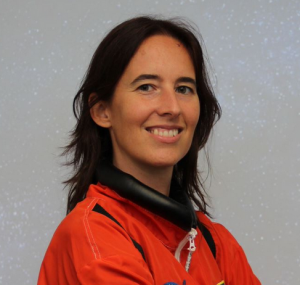 ABOUT DR AGUEDA GRAS-VELAZQUEZ
ABOUT DR AGUEDA GRAS-VELAZQUEZ
“As Head of the Science Education Department at European Schoolnet (EUN), I oversee the coordination of all the mathematics and science projects in which EUN is involved: that is, assigning the appropriate project manager and colleagues to work on each project, reviewing the activities, providing guidance and ensuring they all work together to improve STEM education.”
ABOUT SCIENTIX
Scientix is a free-to-access community for science education in Europe, funded by the European Union’s Research and Innovation Directorate. It promotes and supports a European and worldwide collaboration among STEM teachers, education researchers, policymakers and other STEM education professionals.


